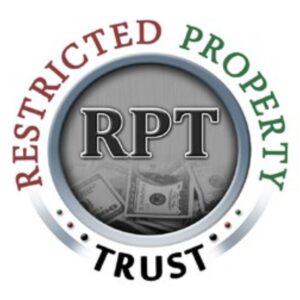Blueprint for Stability: Leveraging Restricted Property Trusts for Long-Term Security
Blueprint for Stability: Leveraging Restricted Property Trusts for Long-Term Security
Blog Article

In the ever-changing world of finance the need to safeguard your assets has become more critical than ever. Restricted Property Trusts (RPTs) provide a method to fortify your financial safety by providing a solid mechanism to protect valuable assets from the potential risk and uncertainty. Restricted Property Trust function and their advantages as a instrument for asset protection.
What Are Restricted Property Trusts?
A Restricted Property Trust is a special financial instrument designed to protect and manage important assets by imposing specific limitations on their use and transfer. In contrast to traditional trusts, RPTs impose certain limitations on the manner in which assets can be accessible or distributed. This gives you a greater degree of protection against legal concerns.
Key Benefits of Restricted Property Trusts
1. Improved Asset Protection A major advantages of RPTs is the capability to protect assets from creditors, lawsuits, and other financial threats. By placing assets in an RPT, investors can safeguard their wealth from possible legal proceedings or financial disputes, making sure that their assets are protected.
2. Tax Benefits: RPTs could provide tax benefits that are significant. The trust's contributions could be tax-deductible, and the earnings generated through the trust's assets could enjoy favorable tax treatment. This can result in substantial tax savings over time, which can improve the overall financial health that the trust member enjoys.
3. Strategies for Estate Planning RPTs have a vital function in estate planning by allowing individuals to transfer their assets to beneficiaries and maintain the ability to control when and how the funds are divided. This helps reduce estate taxes and avoid the complexities of probate which can make it easier to transfer wealth.
4. Controlled distribution: In spite of the restrictions, RPTs offer flexibility in asset management. Trustees can receive specific instructions on how they should manage the assets, while ensuring that they are utilized according to the individual's financial goals and plans from the past.
Setting Up a Restricted Property Trust
The process of establishing an RPT consists of various steps. First, consult with a financial advisor or estate planning lawyer who is skilled in RPTs, to design an appropriate trust to meet your needs. The trust documents will define the restrictions on use of assets and transfer, as well as clarify the responsibilities and roles of the trustees.
Regular updates and reviews of the RPT could be necessary to ensure that it continues to be in line with your financial goals and is able to adapt to any changes in your circumstances.
Conclusion
Restricted Property Trust offer a strategic solution for fortifying your assets and increasing financial safety. Utilizing the distinct advantages of RPTs, you will be able to protect your wealth, enjoy tax benefits and speed up your estate planning. A consultation with a knowledgeable expert is vital to customize the trust to your specific needs, ensuring that assets remain adequately protected and your financial future is secure. Make use of the power of RPTs to create a solid foundation for long-term financial stability along with peace of head. Report this page